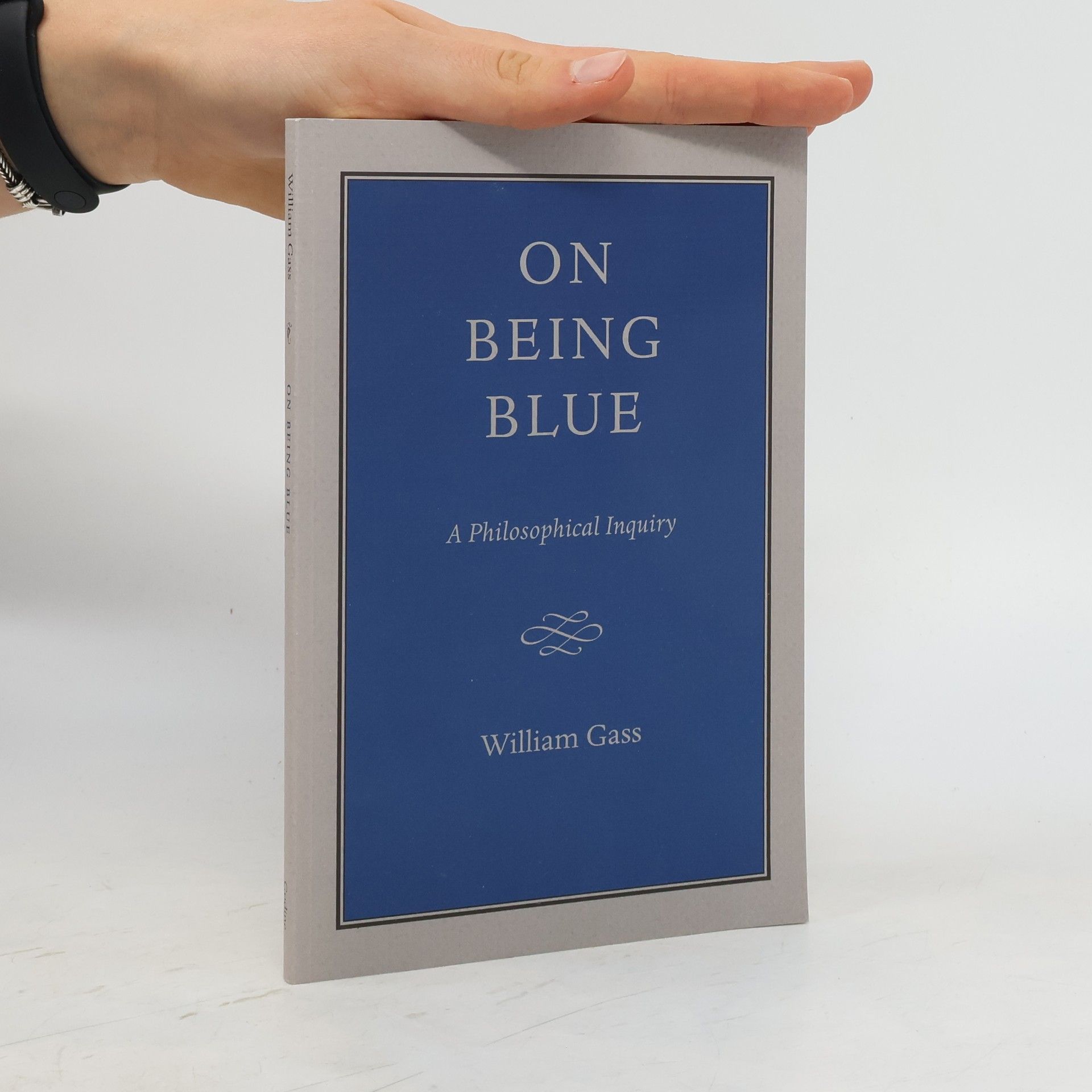Throughout his career, William Gass relentlessly pushed at the boundaries of language, celebrating the music of the sentence and the aesthetics of the written word. Now, the best and most important of his work is collected in one volume. There are essays on Plato, Hobbes, James, Joyce, Beckett, Stein, Gaddis, Sterne, Ford Madox Ford, Thomas Mann. There are pieces that examine the inner workings of writing. There is his masterful short fiction, from the perfectly crafted novella “In Camera” to the mythical “In the Heart of the Heart of the Country.” And there are excerpts from his novels, including his magnum opus, The Tunnel . Taken together, this collection is a peerless, essential celebration of literature—and an invaluable guide for anyone who wants to understand how great writing works.
William H. Gass Livres
William H. Gass était un romancier et essayiste américain célébré pour son exceptionnel virtuosité linguistique et son profond engagement envers la métafiction. Son œuvre explore souvent des thèmes tels que l'isolement humain et les complexités de l'amour, en employant un style décrit comme flashy, difficile, tranchant, magistral, inventif et musical. Gass accordait une immense importance à la construction des phrases, la considérant comme le fondement de son écriture. Sa production créative a été significativement alimentée par la colère de son enfance, se manifestant dans son désir de 'se venger' du monde à travers ses efforts littéraires.






Eyes
- 256pages
- 9 heures de lecture
The point where an underground spring suddenly bursts to the surface is known as an eye. It is a place of mystery, where dry ground becomes soaked with life-giving water, and nature gives us a glimpse of all that happens out of the realm of human vision. So begins William Gass’s latest collection, with these evocative lines from Jan DeBlieu. What follows are six extraordinary works of fiction: stories and novellas that capture these moments of mystery and explore the hidden philosophical depths of everyday life as only Gass can. “Charity” examines the roles of asking, giving, and receiving through the prism of a young lawyer who offers a simple gift. “In Camera” takes us into a photography shop owner’s incomparable collection of images. “Don’t Even Try, Sam” gives us the voice of the prop piano from Casablanca, and “Soliloquy for a Chair” is narrated by a folding chair in a barbershop that is ultimately fated for destruction. Incisive, darkly funny, formally innovative and linguistically stunning, Eyes is a tour de force of modern fiction.
Finding a Form
- 368pages
- 13 heures de lecture
William Gass writes about literary language, about history, about the avant-garde, about minimalism's brief vogue, about the use of the present tense in fiction (Is it due to the lack of both a sense of history and a belief in the future?), about biography as a form, about exile - spiritual and geographical - and he examines the relationship of the writer's life to the writer's work. With dazzling intelligence and wit, Gass sifts through cultural issues of our time and contemplates how written language, whether a sentence or an entire book, is a container of consciousness, the gateway to another's mind that we enter for a while and make our own.
The Recognitions
- 956pages
- 34 heures de lecture
Wyatt Gwyon forges art not from larceny but from love. He produces uncannily accurate "originals", faithful to the spirit and the letter of the Flemish masters. In an age when the real and the fake have become indistinguishable, Gwyon's forgeries reflect a truth that others cannot even recognize.
Brackett Omensetter arrives, with his wife, family and belongings in the rural American town of Gilean. It swiftly becomes apparent that he is someone out of the ordinary, as he sets off a ground swell of violent emotions in the once tranquil commmunity. Who is he? What does he represent?
Thirty years in the making, William Gass's second novel first appeared on the literary scene in 1995, at which time it was promptly hailed as an indisputable masterpiece. The story of a middle aged professor who, upon completion of his massive historical study, Guilt and Innocence in Hitler's Germany, finds himself writing a novel about his own life instead of the introduction to his magnum opus. The Tunnel meditates on history, hatred, unhappiness, and, above all, language.
First published in 1936 and long out of print, The Geographical History of America brings together prose pieces, dialogues, philosophical meditations, and playlets by one of the century's most influential experimental writers. This short but brilliant book offers a dimension of Gertrude Stein's thinking not available elsewhere. Here Stein sets forth her view of the human what it is, how it works, and how it is different from - and more interesting than - human nature.Geographical History also elaborates on Stein's concepts of identity, landscape, presence, and composition. Today, as literary discourse pays more attention to textuality, to voice, reader-response, and phenomenology, Stein emerges as a pioneering modernist to whom the century is slowly catching up. For those in the performing arts, Geographical History further addresses the notion of play as landscape, one of Stein's most influential theatrical ideas, as well as such issues as dialogue, character, and dramatic structure - in a book that is itself a model of modern experimentation.
Middle C
- 416pages
- 15 heures de lecture
In a series of brilliant variations, William Gass presents a man’s life—futile, comic, anarchic—arranged in an array of vocabularies, altered rhythms, forms, and tones, with music as both theme and structure. It begins in Graz, Austria, in 1938, when Joseph Skizzen’s father pretends to be Jewish and emigrates to avoid the Nazis. In London with his wife and children for the duration of the war, he mysteriously disappears and the rest of the family relocates to a small town in Ohio. Here Joseph Skizzen grows up and leads a resolutely ordinary life, but one that is built on a scaffold of forgery and deceit. Outwardly he is a professor of music at a mediocre college; secretly he is the earnestly obsessive curator of a private Inhumanity Museum, meant to contain the guilt of centuries of atrocities. Middle C tells the story of his journey—a story that is also an investigation into the nature of identity and the ways in which each of us is several selves.
In a philosophical approach to color, William Gass explores man's perception of the color blue as well as its common erotic, symbolic, and emotional associations.
In The Heart Of The Heart Of The...
- 256pages
- 9 heures de lecture
First published in 1968, In the Heart of the Heart of the Country established William Gass as one of America’s finest and boldest writers of fiction, and nearly fifty years later, the book still stands as a landmark of contemporary fiction. The two novellas and three short stories it contains are all set in the Midwest, and together they offer a mythical reimagining of America’s heartland, with its punishing extremes of heat and cold, its endless spaces and claustrophobic households, its hidden and baffled desires, its lurking threat of violence. Exploring and expanding the limits of the short story, Gass works magic with words, words that are as squirming, regal, and unexpected as the roaches, boys, icicles, neighbors, and neuroses that fill these pages, words that shock, dazzle, illumine, and delight.


